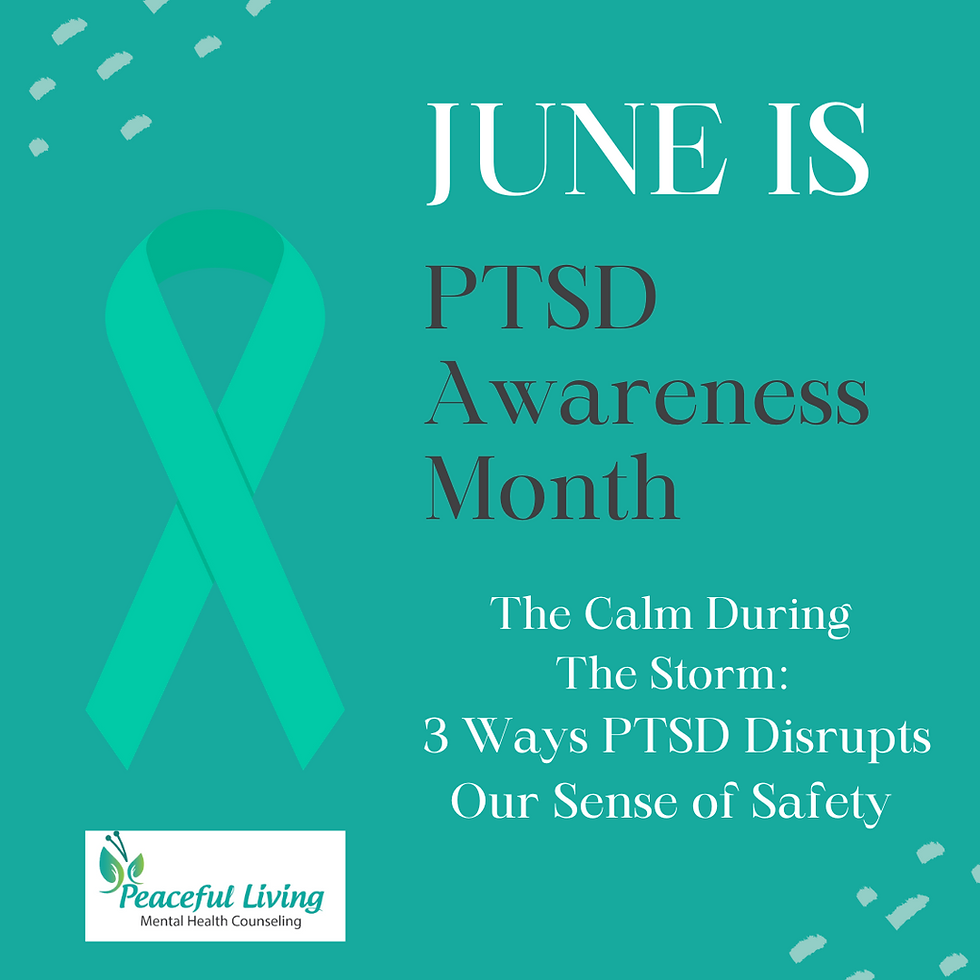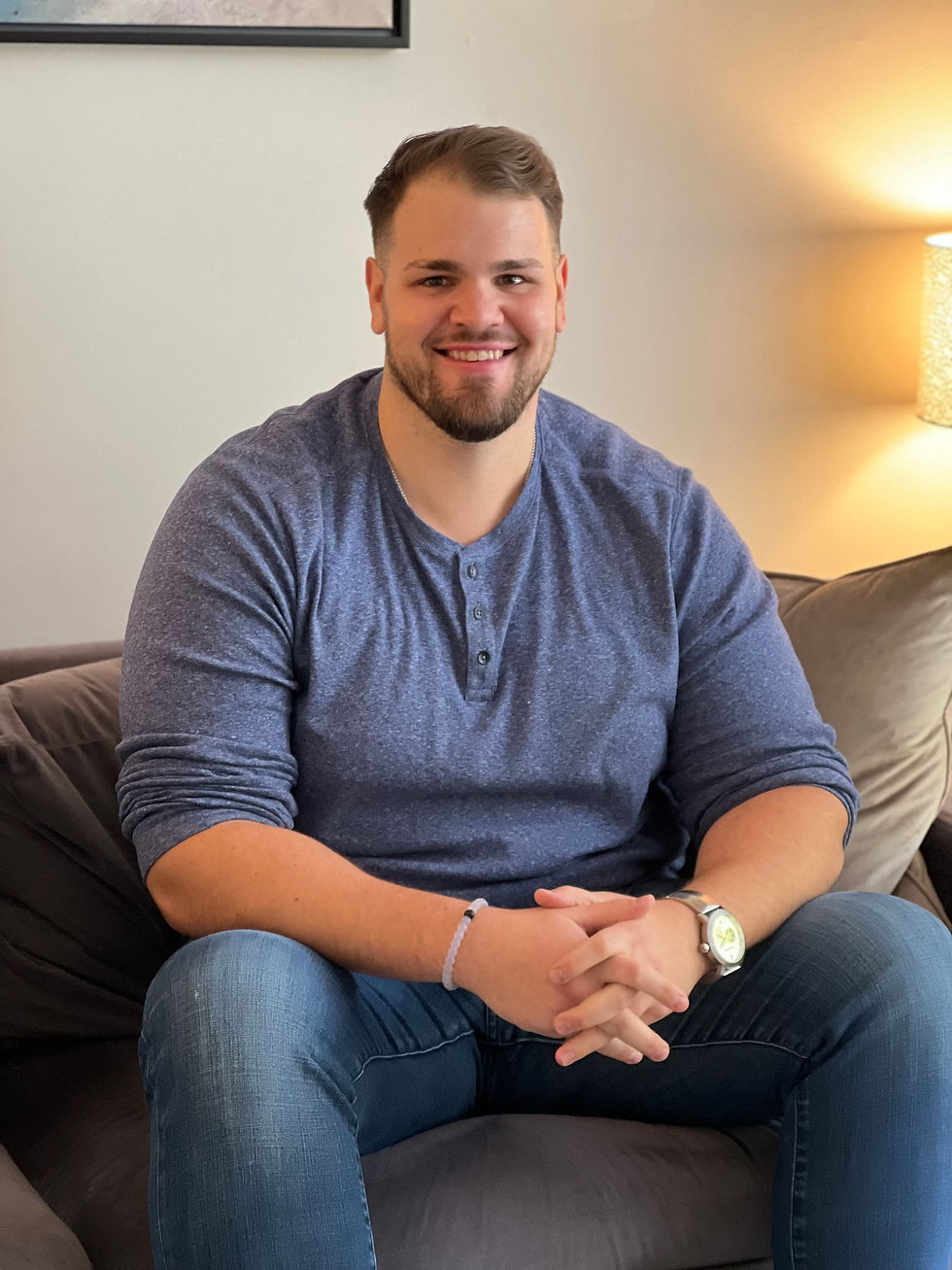3 Ways PTSD Disrupts Our Sense of Safety in from a Trauma Therapist in Eastchester, NY
- seanoconnorlmhc
- Jun 8, 2023
- 3 min read
Updated: Sep 24, 2023
June is PTSD Awareness Month. So let's talk about it.
Trauma is a term that many of us are familiar with, but the complexity and severity of its impacts are often underestimated. Complex trauma refers to the repeated exposure to traumatic events or situations that can have long-lasting and profound effects on our mental, emotional, and physical well-being. It’s not always clear cut in the form of nightmares, flashbacks, panic attacks, etc. Post-traumatic stress can work insidiously to disrupt our way of life if we aren’t aware of how it manifests and here are a few ways it often goes unnoticed generation to generation.
1. Relationships
One of the most significant ways in which complex trauma subconsciously affects our perception of safety and danger is through our relationships. Survivors of trauma may view themselves as undeserving of a safe relationship, so they begin to unconsciously seek out toxicity that reflects their underlying beliefs. Perhaps this magnetic, unconscious attraction to danger offers them the chance to resolve instead of mourn the past. If they don't leave, they can continue to fix and create the illusion of control, which never permanently satisfies the hunger for validation from the past. Furthermore, the unconscious pattern of seeking out danger may be a way to prove their worthiness or escape pain by feeling invulnerable when faced with threat and fear - a sort of unconscious "training" to be intensely disturbed time and time again throughout life. This can lead to cycles of entering into more harmful relationships unknowingly because it feels safer than loneliness or being vulnerable alone.
2. Hobbies, Interests, and Behaviors
Trauma can also impact our choice of hobbies, interests, and behaviors. Adrenaline pumping activities provide survivors with a sense of control and competence as they learn to manage new challenges and conquer fears. Thrill seeking gives them an opportunity for momentary escape from painful thoughts, memories, or feelings about past traumatic events. Risk-taking can be part of the survivor’s healing journey as they strive to redefine themselves after experiencing profound losses of all different kinds. Unfortunately, healthy self care activities can feel like the enemy. Without this level of stimulation they may feel numb, depersonalized and derealized as they seemingly watch the world go by through the looking glass.
3. Reaction to Peace
Trauma survivors often experience a heightened level of alertness and sensitivity to their environment, even when no apparent danger is present. This heightened state of awareness fits like a puzzle piece perfectly into situations that require a high level of thinking while under a high level of bodily stress. After milestones such as graduating, winning a championship, or starting a family, a sense of "now what?" can occur. This is often masked as “I’m depressed”, or “I have to achieve even more”, just to experience the burnout out again. They may have been taught to tolerate stress, but they also need to be taught that it's safe to not feel that level of stress.
Trauma can have far-reaching impacts on our lives, affecting our ability to distinguish safety from danger in our relationships, behaviors, and reactions to peace. By understanding the ways in which trauma affects us, we can begin to develop strategies and coping mechanisms to help us better navigate our lives. Survivors of complex trauma should feel empowered to seek out professional help in order to process their experiences and ultimately heal. By doing so, we can work towards rebuilding our sense of safety and security in the world around us. There is certainly danger in the world, however we are far more equipped to deal with it than we perceive. One of the healthiest things we can do for overall quality of life is work to keep the fight or flight responses reserved for situations where one of those two options actually solves the problem.
Sean O'Connor is a licensed mental health counselor (LMHC) at Peaceful Living Mental Health Counseling in Scarsdale, NY.
Sean specializes in sports psychology and trauma informed counseling to helps adults and athletes overcome anger, depression, anxiety, PTSD and stress.
Sean loves working with athletes and survivors of childhood trauma and helps them heal from the past, love the present, and have hope for the future.
Sean is available to take new clients Mondays-Thursdays virtual or in our Scarsdale Office.






Comments